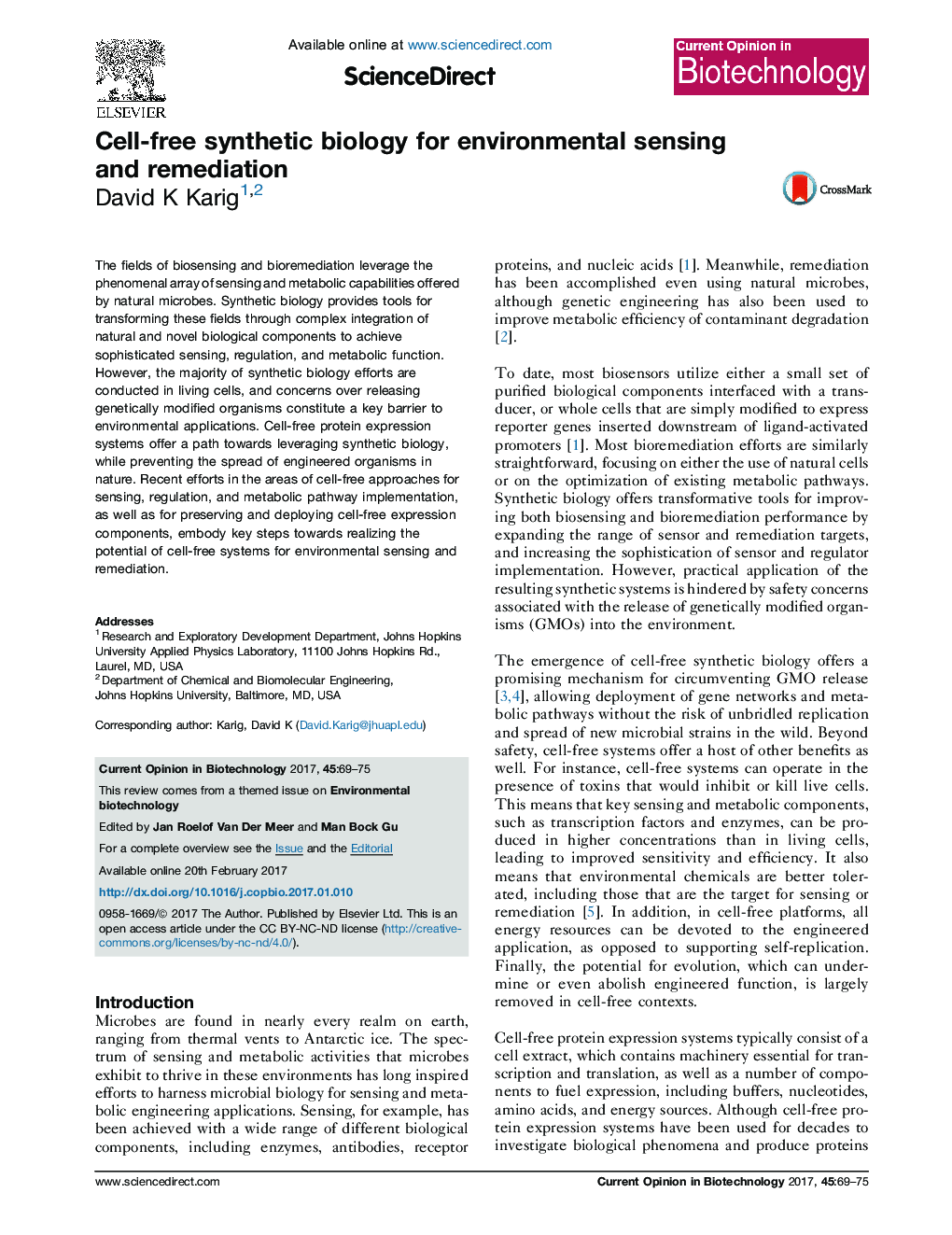| Article ID | Journal | Published Year | Pages | File Type |
|---|---|---|---|---|
| 6451684 | Current Opinion in Biotechnology | 2017 | 7 Pages |
â¢Cell-free protein expression systems offer a flexible, safe path for biosensing and remediation.â¢Cell-free regulatory networks enable sophisticated sensing and remediation systems.â¢Advances in cell-free metabolic engineering will drive novel remediation strategies.â¢Extending reagent shelf-life and optimizing encapsulation will facilitate practical use.
The fields of biosensing and bioremediation leverage the phenomenal array of sensing and metabolic capabilities offered by natural microbes. Synthetic biology provides tools for transforming these fields through complex integration of natural and novel biological components to achieve sophisticated sensing, regulation, and metabolic function. However, the majority of synthetic biology efforts are conducted in living cells, and concerns over releasing genetically modified organisms constitute a key barrier to environmental applications. Cell-free protein expression systems offer a path towards leveraging synthetic biology, while preventing the spread of engineered organisms in nature. Recent efforts in the areas of cell-free approaches for sensing, regulation, and metabolic pathway implementation, as well as for preserving and deploying cell-free expression components, embody key steps towards realizing the potential of cell-free systems for environmental sensing and remediation.
Graphical abstractDownload high-res image (157KB)Download full-size image
